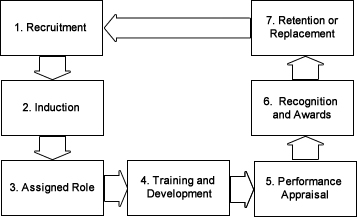Volunteer
Find out more about out volunteer program:
About Volunteering[edit | edit source]
Why volunteer?[edit | edit source]
Volunteering for Physiopedia is an amazing opportunity for any physiotherapist or physical therapist. It is a great complement to your daily work, improves employability and will contribute to your continuing education and professional development.
We are building the largest physiotherapy and physical therapy specific resource available, and we need your help! There is always so much to do to at Physiopedia and we always welcome offers to contribute. Help us to build what we hope will become an amazing resource for our profession.
How will it benefit you?[edit | edit source]
Joining us on the team at Physiopedia is a great complement to any physiotherapist’s daily work, and also to your CV. From the experience you are likely to gain new profession-related knowledge and also to advance your technical skills. Volunteering will contribute to your continuing education and professional development and you can know, and feel good about the fact, that you have contributed to our global profession by playing an important role in building this professional resource.
You will be added to our Volunteers page, and following a successful voluntary position we will be happy to provide you with certification for your continuing education and professional development, and references for your current and potential employers.
How do I become a volunteer?[edit | edit source]
All our volunteers complete the Volunteer Orientation Course after which they are provided with roles that suit their individual qualifications, experience and interests.
If you would like to become a volunteer, sign up for the next Volunteer Orientation Course here.
If you have any questions please do get in touch.
Volunteer Program[edit | edit source]
1. Recruitment[edit | edit source]
- Volunteers will be recruited from the physiotherapy and physical therapy community. They may be students, graduates, clinicians, educators, researchers.
- On acceptance to the volunteer program you will become a White Belt Volunteer.
2. Orientation
[edit | edit source]
- All volunteers must progress through the volunteer orientation course.
- During this orientation period you must complete your profile page, create 1 new page and quality assess 3 pages in Physiopedia. This task will help to familiarise you with navigating and editing the site. You will gain valuable technical skills that will enable you to progress on through the volunteer program.
- On graduation from this orientation period you will be provided with certification to prove your progress through the program for employers and continuing education and professional development purposes.
- On graduation from the orientation period you will become a Yellow Belt Volunteer.
Read more about the *Volunteer Orientation Course
3. Assigned Role[edit | edit source]
- Once you have graduated from the orientation period you will complete 6 months on the content review team. This will consolidate your editing skills and understanding of the Physioepdia project in it's entrity.
- After 6 months, following discussion, you will be assigned to a job that suits your personal preferences, motivation, skills, experience and qualifications.
- You will be expected to meet the specific requirements of your volunteer role and submit an activity report every month.
4. Training and Development[edit | edit source]
- Volunteers will be provided with all the training that they need for their specific role.
- Volunteers will also benefit from free access to Physiopedia Plus.
5. Performance Appraisal[edit | edit source]
- Each volunteer will have an appraisal at the end of every year of service.
- Volunteers have the opportunity to progress through the volunteer ranks on an anual basis following a satisfactory performance appraisal.
6. Recognition and Awards[edit | edit source]
- Certification will be provided to prove volunteer role to employers and continuing education and professional development requirements.
- Awards will be appropriately made on an annual basis to progress volunteers through our volunteer ranks.
- Volunteers who display exceptional skills in contributing to Physiopedia may be promoted into a managerial role.
7. Retention or Replacement[edit | edit source]
- Volunteers may choose to leave the program at any time. Underperforming volunteers will be replaced.
Volunteer Rights[edit | edit source]
Volunteers have the right to . . .
- an adequate orientation to the organisation
- a clearly written job description
- be assigned to a job that suits their personal preferences, motivation, skills, experience and qualifications
- be trained to do their job
- a satisfying job
- know their supervisor and how to contact them
- be provided with adequate guidance and supervision
- have their personal information held confidentially
- be involved in decisions that affect their areas of responsibility
- have their concerns and complaints heard
- be respected by co-workers
- feedback about their performance
- be recognised for contributing their time, experience, ideas and skills
- say ‘no’; volunteers should not be coerced into doing tasks against their wishes or that they do not feel qualified to do
- to take time off for a holiday or for personal reasons
- to resign from their position.
Volunteer Responsibilities[edit | edit source]
Volunteers have the responsibility to . . .
- ensure they have the time necessary to take on a volunteer position
- work within the policies and rules of the organisation
- respect the privacy of staff and other volunteers
- be reliable and dependable
- complete agreed hours and tasks
- inform the organisation when they will not be available to volunteer
- be loyal to the organisation
- speak up about important issues or concerns
- attend orientation and training sessions
- follow directions given by supervisors
- be a team player and to support staff and other volunteers
- be considerate about the views of staff and other volunteers
- identify their limitations and expectations
- be accountable and to accept constructive criticism







